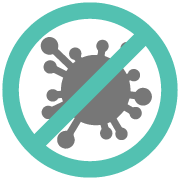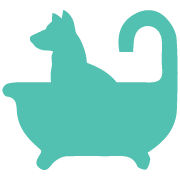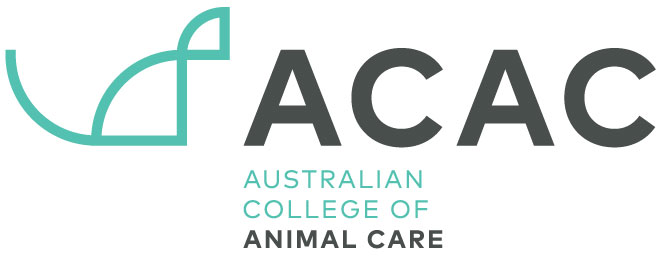
COURSE HANDBOOK
What Will I Learn in this Course?
This course is designed to give you a complete introduction to working in the animal care industry and kick-start your career.
Here’s a list of the subjects you’ll study:
Animal Handling


This subject equips you with the essential skills and knowledge needed for effective animal handling across a variety of species. Learn the fundamentals of working safely and compassionately with animals, including the proper use of handling equipment and transport methods. Detailed training covers specific techniques for managing dogs, cats, birds, other domestic species, and wildlife. This comprehensive approach ensures you are well-prepared to handle different animals in various care settings, emphasising safety and minimising stress for both the animals and handlers.
Working Safely in Animal Care


Health and safety are vital aspects of working in any animal care workplace. We’ll introduce you to Work Health and Safety legislation and how it applies to employees, and teach you the basics of risk management and controls. We’ll also show you how to deal with sharps, allergies, noise, dangerous chemicals and drugs, emergencies, biological hazards and zoonoses. Then we’ll finish off with a closer look at animal hazards and manual handling when it comes to animal care workplaces and how you can minimise injury.
Communications


Master the art of effective communication within the animal care environment in this comprehensive subject. You’ll explore various aspects of communication, including verbal and non-verbal cues, as well as written and digital correspondence, essential for maintaining professional interactions. Understand the importance of privacy and confidentiality in handling sensitive information. Enhance your teamwork skills with focused training on team communication, managing meetings and discussions, and resolving complaints and conflicts. Additionally, this subject covers common workplace calculations and veterinary terminology to equip you with the practical skills needed for precise communication in animal care settings.
Animal Welfare

This subject delves into the critical components of animal welfare, providing a deep understanding of the laws, social aspects, and ethical considerations that define the field. Begin with an exploration of animal welfare legislation and the societal influences on welfare practices. Learn about industry-specific welfare concerns and the ethical frameworks that guide decision-making. Study comprehensive welfare models such as the Five Freedoms, Five Domains, and Quality of Life, which provide structured approaches to assessing and enhancing animal welfare. Additionally, this course introduces industry-specific assessment tools to evaluate the welfare standards in various animal care settings, ensuring you are well-prepared to advocate for and contribute to the wellbeing of animals.
First Aid for Animals

Gain crucial skills in animal first aid to effectively respond in emergency situations. This subject teaches you to recognise the signs of an emergency, identify potential hazards, and perform basic first aid procedures to stabilise animals in distress. Learn the best practices for safely transporting animals to a veterinary clinic, ensuring they receive professional care as quickly as possible. This course is vital for anyone working with animals, providing the knowledge and techniques needed to act swiftly and responsibly in critical moments.
Animal Husbandry

This subject offers an in-depth exploration of practical animal husbandry, essential for anyone working in animal care. Gain insights into the daily operations within animal care facilities, focusing on health care, hygiene practices for housing, and individual animal cleanliness. You’ll learn about regular husbandry routines that ensure the wellbeing of animals under care. The course also covers critical skills such as making observations, administering treatments, keeping accurate records, conducting physical examinations, and administering medications. Furthermore, you will study the importance of maintaining security and managing stock within a care facility. This comprehensive overview equips you with the foundational knowledge and skills needed to provide high-quality care and maintain the health and safety of animals.
Infection Control in Animal Care


This subject is crucial for understanding and implementing effective infection control measures in animal care settings. It begins with an introduction to basic microbiology and the mechanisms of disease transmission. Learn about standard precautions including hand hygiene, proper waste disposal, and the use of cleaning chemicals to maintain a sterile environment. The course emphasizes the importance of clinic and equipment hygiene, food safety, and the operations of isolation wards to prevent the spread of infections.
Self Care & Wellbeing

This subject is designed to address the critical aspect of self-care and wellbeing for those working in the animal care industry. It emphasizes the importance of maintaining personal health and ethical considerations within the workplace. You will explore emotional intelligence and resilience, understanding how these skills can help manage the mental health challenges commonly faced in animal care settings. The course also discusses the emotional toll when working directly with animals, particularly in distressing situations, and the unique challenges posed by interactions with clients or colleagues. Learn effective strategies for handling personal responses to challenging circumstances and developing a robust self-care routine. By the end of this subject, you will be equipped to create a personalised action plan that ensures your wellbeing while fulfilling your professional responsibilities in animal care.
Animal Nutrition


This subject provides a comprehensive overview of the dietary needs and feeding strategies across a wide range of animal species. It starts with an exploration of feeding taxonomies and the natural feeding behaviours of different animals. Gain an understanding of the essential nutrients required for various species and the factors that influence their nutritional needs. Learn about different feeding regimes and strategies, and how to interpret pet food types and labelling accurately. Detailed sections on species-specific nutrition cover canines, felines, equines, pocket pets, birds, reptiles, and wildlife. You’ll also address critical issues such as obesity and weight loss programs, ensuring the health and well-being of animals in animal care facilities and beyond. This subject equips you with the knowledge to provide optimal nutritional support for animals under your care, whether in a clinical, shelter, or domestic environment.
Enrichment for Animals

This subject delves into the vital role of enrichment in promoting healthy behaviour and overall well-being in animals. Begin with an introduction to both behavioural and environmental enrichment, understanding how these elements influence animal behaviour positively. Explore common maladaptive behaviours and identify their causes. Learn the key elements of effective enrichment strategies that can mitigate these behaviours. Finally, apply your knowledge by designing an enrichment program tailored to specific animal needs, enhancing their physical and psychological health. This course is essential for anyone looking to improve the quality of life for animals in their care.
Anatomy & Physiology

This subject offers an in-depth exploration of the anatomical structures and physiological processes of multiple species, covering all 11 body systems. You’ll gain a comprehensive understanding of how these systems function individually and interact within different animals. This includes the cardiovascular, respiratory, digestive, nervous, and reproductive systems, among others. Through detailed study, you’ll learn to identify species-specific anatomical features and understand the variations in physiological mechanisms across various animal types. This knowledge is crucial for anyone looking to enhance their competency in animal care, veterinary medicine, or related fields, providing a solid foundation for advanced studies and practical applications.
Work Placement

To ensure you really understand what you are learning, and master the necessary practical skills, you will undertake 10 to 20 days (8 hrs each) of work placement in an approved workplace. Required days will vary depending on the units you select.
We are very flexible – you can change the structure of the placement to suit you and the workplace, whether you do a day a week, or blocks of weeks.
Prior to starting your placement, you must successfully complete both the “Working Safely in Animal Care” and “Animal Handling” subjects, and submit the placement arrangement forms.
And then select 5 unit credits from the following subjects:
Sourcing Good Information (1 unit credit)

Master the art of sourcing and managing information critical to animal care. This subject teaches you how to identify and obtain relevant data, including detailed medication information essential for ensuring proper care. Learn the skills needed to effectively communicate vital information to clients, ensuring they have the knowledge to support their pets’ health. You will also gain proficiency in maintaining accurate workplace records and navigating microchip registries, which are crucial for the management and identification of animals. This subject equips you with the knowledge and tools to handle information responsibly and efficiently in any animal care setting.y.
Payments & Banking (2 unit credits)


This subject delves into the practical aspects of handling financial transactions in an animal care setting, focusing on the skills needed for efficient and accurate payment processing. Learn how to operate point-of-sale equipment and follow proper sale procedures to ensure smooth transactions. You’ll gain expertise in invoicing, record keeping, and calculating sales to maintain accurate financial records. The course also covers the essentials of taking payments, managing post-sale procedures, and executing refunds and exchanges. Further, you will learn how to balance the terminal at the end of the day and perform reconciliation to ensure that all transactions are accounted for correctly.
Care of Birds (1 unit credit)

This subject is specifically tailored to provide comprehensive knowledge on avian care, addressing the unique requirements of various bird species. Starting with an overview of different avian species, the course explores basic avian anatomy to give students a foundational understanding of their physical structure. Key aspects of proper housing and husbandry are discussed to ensure safe and suitable living conditions. Environmental enrichment techniques are covered to enhance the well-being and behavioural health of birds in captivity. The course also delves into general healthcare, emphasising preventive measures and routine care to maintain optimal health. Nutrition is thoroughly examined to equip students with the ability to provide species-appropriate diets. Additionally, safe practices for the transport and handling of birds are taught to minimise stress and ensure safety during movements.
Care of Reptiles (1 unit credit)

Dive into the fascinating world of reptiles with this subject designed to provide a thorough understanding of various reptilian species. Begin with an introduction to the Reptilia class, covering essential characteristics and adaptations. Explore specific details about common lizard, non-venomous snake, and chelonian species, enhancing your ability to identify and care for these animals properly. Learn about the optimal housing and habitat setups that mimic natural environments and promote healthy living conditions. Environmental enrichment and understanding natural behaviours are emphasised to ensure reptiles remain active and engaged. The course also covers general healthcare practices, focusing on preventive care and common health issues faced by reptiles. Nutrition is discussed in depth, teaching you how to meet the dietary needs of different species. Lastly, safe transport and handling techniques are explored to ensure the well-being of reptiles during movements.
Care of Rabbits & Rodents (1 unit credit)

Explore specialised care techniques for rabbits and rodents, covering breed identification, anatomy, and tailored husbandry practices. Learn the nuances of rabbit and rodent behaviour to provide environments that promote natural activities. Master safe handling, restraint techniques, and proper nutrition for each species to ensure their health and well-being. This subject provides a focused approach to the effective management and care of these small but complex animals.
Sustainability in Animal Care (1 unit credit)

Delve into sustainable practices within the animal care industry. This subject starts with an understanding of relevant regulations and foundational information on sustainability in animal care settings. Learn to critically analyze current practices and identify areas for improvement. The course focuses on setting achievable sustainability goals and provides strategies for effectively monitoring performance to ensure these objectives are met. This approach helps integrate environmental responsibility into everyday animal care practices.
Hydrobath and Groom Animals (2 unit credits)


Gain expertise in hydrobathing and grooming animals, focusing on safety, animal welfare, and client service. This subject covers WHS protocols specific to bathing and grooming environments, monitoring animal behaviour for signs of stress, and considering each animal’s specific needs during grooming. Learn about the necessary equipment, preparation techniques, brushing, and basic grooming methods. The subject also teaches how to provide grooming advice to clients, create grooming plans, and maintain client cards.
